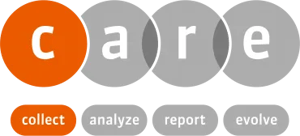Data collection is the first step on the road to successful product compliance and sustainability in order to obtain type approval and bring a sustainable product to market. To manage product compliance and sustainability, information about products must be collected, summarized and kept up to date. Data quality and completeness are critical in this step. Once this requirement is met, the data can successfully be used for a variety of purposes.
Overcome the challenges of data collection with an integrated and automated solution
The constant changes in data, products, supplier parts, supply chain and regulations make data collection particularly challenging for companies. A precise understanding of the regulations is required in order to identify the data to be collected.
To overcome these challenges, integration, automatization, transparency and traceability are becoming key requirements. Having the data as granular as possible ensures a high data quality and is key for increasing the accuracy especially for calculating carbon footprints and environmental impacts.
Data collection is a precondition to reduce carbon emissions
Customers and regulators are increasingly focused on the carbon emissions of products. That is why Product Carbon Footprints (PCF) and Life Cycle Assessments (LCA) are coming more and more into focus. This requires not only product and material data, but also information on, for example, energy, electricity mix and environmental data.

Collect the relevant compliance & sustainability data –
Compliant and sustainable products through integrated and automated data collection
We have compiled our many years of experience in data collection in a paper, which is part of the iPoint CARE series. Learn more about the challenges of data collection and key capabilities you need to overcome these challenges. Why should compliance and sustainability data be collected in combination and where do you receive the relevant data from?
Dive deeper into the challenges and solutions of data collection and learn from best practice example Hella about collecting data in the automotive industry.
The CARE principle is the core of the iPoint Suite
iPoint provides the transparency you need to simplify compliance, sustainability and risk management. This requires taking 4 steps: collect the relevant data and analyze the relations and impacts in order to report the right information to the relevant stakeholders and evolve the company towards your goals.
By applying CARE, companies can, among other things, identify substances of concern or their product’s carbon footprint, qualify and approve suppliers, and thus take control of their environmental, social and economic impacts.
iPoint supports you on the path to product compliance and decarbonization all the way. The iPoint Suite not only ensures faster global market access for your safe and compliant products but also enables better positioning though sustainable products since customers and investors increasingly consider environmental factors.






